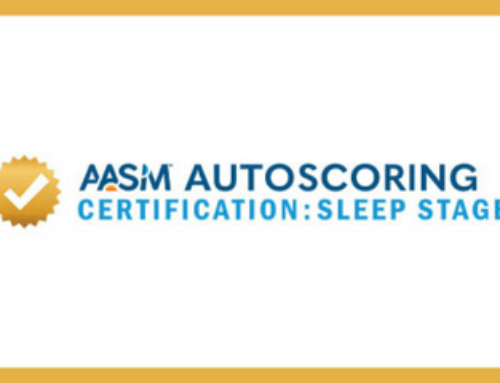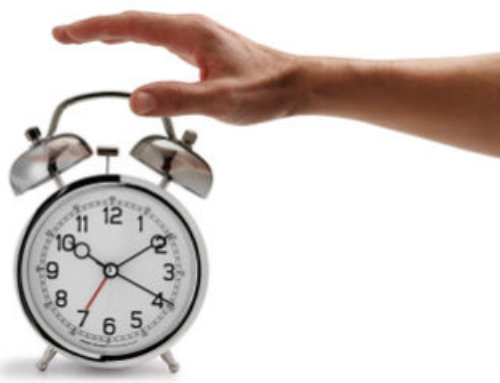EMBARGOED FOR RELEASE: January 1, 2009 – 12:01 a.m. EST
Westchester, Ill. — A study in the Jan. 1 issue of the journal Sleep demonstrates that the frequent arousals from sleep that occur in heart failure patients with central sleep apnea (CSA) may reflect the presence of another underlying arousal disorder rather than being a defensive mechanism to terminate apneas.
Principal investigator, Douglas Bradley, professor of medicine at the University of Toronto said that researchers involved in the study were surprised that using CPAP to alleviate CSA had no effect on arousals and no effect on sleep structure.
Bradley said, “These results indicate that unlike OSA, arousals from sleep in CSA are not protective, but probably have the opposite effect: they appear to be causative. This finding suggests that future studies should explore preventing arousals from sleep in order to treat CSA.”
Results indicate that after three months of treatment with continuous positive airway pressure (CPAP) therapy, heart failure patients with CSA show no significant improvement in the frequency of their arousals or in their sleep structure even though breathing pauses are significantly reduced by 55 percent from 35.4 central apneas and hypopneas per hour to 16.1 events per hour. Arousals remain high (24.3 arousals per hour on CPAP compared to 28.8 at baseline), total sleep time stays the same at 318 minutes, and sleep efficiency remains low at 70 percent.
Data were analyzed from 205 heart failure patients with CSA who were enrolled in the Canadian Continuous Positive Airway Pressure for Patients with Central Sleep Apnea and Heart Failure trial, a prospective, randomized, multicenter clinical trial. Participants were between 18 and 79 years of age, and they were randomly assigned to a CPAP treatment group (97 members) or a control group (108 members). CSA was defined as an apnea-hypopnea index (AHI) of 15 or more with more than 50 percent of apneas and hypopneas central in nature. Members of both groups were assessed by overnight polysomnography at baseline and again after three months. Participants in the treatment group were instructed to use CPAP nightly for six or more hours, and their actual usage time was 4.6 hours per day.
According to the authors, arousals in patients with obstructive sleep apnea (OSA) are considered to be an important defense mechanism to terminate apneas, and treating OSA with CPAP immediately reduces the frequency of arousals. In contrast, arousals in heart failure patients with CSA often occur several breaths after apnea termination.
The authors suggest that hear failure patients with CSA may have a “predisposition to hyperarousability,” and in some there may be an underlying arousal disorder accompanied by sleep disruption that is neither a consequence of CSA nor of impaired cardiac function. In heart failure patients with CSA, arousal from sleep may be incidental to, or play a causative role in, the development of CSA by rendering the respiratory control system unstable. Thus factors other than sleep apnea such as pulmonary congestion during the night, other comorbidities, or medications, may explain the frequent arousals that heart failure patients experience.
According to the American Academy of Sleep Medicine, central sleep apnea involves recurrent breathing pauses that occur during sleep with no associated breathing effort. A form of central sleep apnea, Cheyne Stokes breathing pattern, is most common in men over the age of 60 who have had heart failure or a stroke. More information about central sleep apnea is available from the AASM at http://www.sleepeducation.com/Disorder.aspx?id=50.
Sleep is the official journal of the Associated Professional Sleep Societies, LLC (APSS), a joint venture of the American Academy of Sleep Medicine and the Sleep Research Society.The APSS publishes original findings in areas pertaining to sleep and circadian rhythms. Sleep, a peer-reviewed scientific and medical journal, publishes 12 regular issues and 1 issue comprised of the abstracts presented at the SLEEP Meeting of the APSS.
For a copy of the study, “Effect of continuous positive airway pressure on sleep structure in heart failure patients with central sleep apnea,” or to arrange an interview with an AASM spokesperson, please contact Kelly Wagner, AASM public relations coordinator, at (708) 492-0930, ext. 9331, or kwagner@aasm.org.
AASM is a professional membership organization dedicated to the advancement of sleep medicine and sleep-related research. As the national accrediting body for sleep disorders centers and laboratories for sleep related breathing disorders, the AASM promotes the highest standards of patient care. The organization serves its members and advances the field of sleep health care by setting the clinical standards for the field of sleep medicine, advocating for recognition, diagnosis and treatment of sleep disorders, educating professionals dedicated to providing optimal sleep health care and fostering the development and application of scientific knowledge.
###








